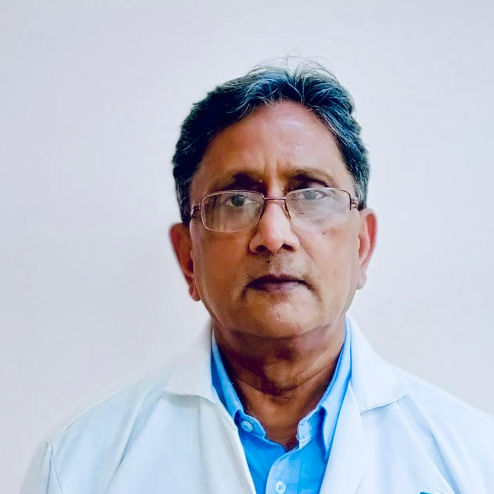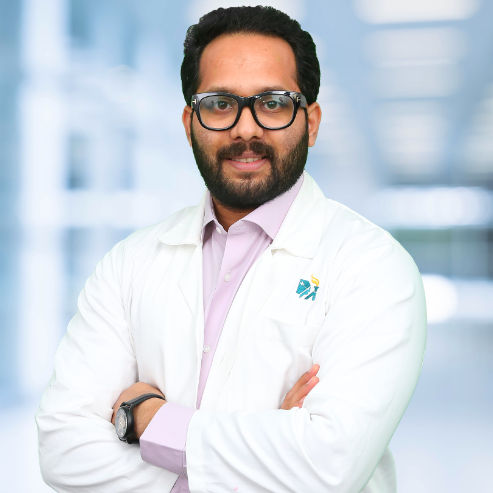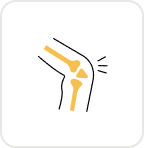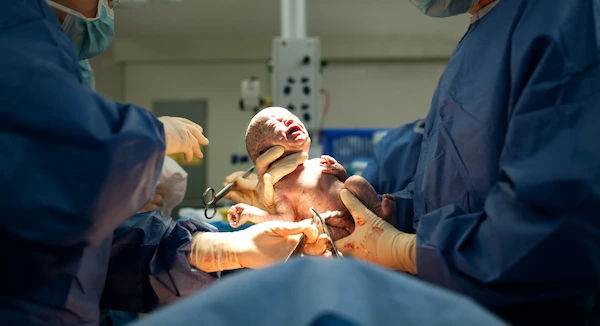Osteomalacia: Symptoms, Causes, and Treatments
Understand osteomalacia, its symptoms, causes, and treatments. Learn how this bone-softening condition develops and ways to manage and improve bone health.

Written by Dr. Rohinipriyanka Pondugula
Reviewed by Dr. Shaik Abdul Kalam MD (Physician)
Last updated on 13th Jan, 2026

Introduction
Osteomalacia is a condition that weakens your bones, making them softer than they should be. Unlike osteoporosis, which makes bones brittle, osteomalacia affects the way your bones harden, leading to pain and an increased risk of fractures. The good news is that with proper diagnosis and treatment, osteomalacia can be managed effectively.
In this article, we’ll explore the symptoms, causes, and treatments for osteomalacia, along with some helpful lifestyle tips to keep your bones strong and healthy.
What Is Osteomalacia?
Osteomalacia is a bone disorder where the bones don’t harden properly due to a lack of vitamin D, calcium, or phosphate. This softening can lead to bone pain, muscle weakness, and an increased risk of fractures.
While osteomalacia affects adults, a similar condition in children is called rickets. Both conditions are usually caused by a deficiency in vitamin D, which is essential for calcium absorption and bone health.
Consult an Orthopaedician for the best advice
Symptoms of Osteomalacia
The symptoms of osteomalacia can develop slowly and may be mistaken for other conditions like arthritis or general fatigue. Common signs include:
- Bone pain, especially in the hips, lower back, legs, and ribs
- Muscle weakness, making it hard to climb stairs or get up from a chair
- Difficulty walking or a waddling gait
- Bone tenderness when pressed
- Frequent fractures, even from minor bumps or falls
- Fatigue and general weakness
If you experience these symptoms, especially if they persist or worsen, it’s important to consult a doctor.
What Causes Osteomalacia?
The most common cause of osteomalacia is a severe vitamin D deficiency. Vitamin D helps your body absorb calcium and phosphate, two minerals crucial for strong bones.
Other causes include:
1. Lack of Sunlight Exposure – Your skin produces vitamin D when exposed to sunlight. People who stay indoors most of the time or live in regions with little sunlight are at higher risk.
2. Poor Diet – Not consuming enough vitamin D-rich foods (like fatty fish, eggs, and fortified milk) can lead to deficiencies.
3. Digestive Disorders – Conditions like celiac disease, Crohn’s disease, or gastric bypass surgery can interfere with nutrient absorption.
4. Kidney or Liver Problems – These organs help convert vitamin D into its active form. If they aren’t functioning well, vitamin D levels may drop.
5. Certain Medications – Some anti-seizure drugs and antacids can affect vitamin D metabolism.
How Is Osteomalacia Diagnosed?
If your doctor suspects osteomalacia, they may recommend:
- Blood tests – To check vitamin D, calcium, and phosphate levels.
- X-rays or bone scans – To detect bone softening or small cracks (pseudofractures).
- Bone biopsy – Rarely needed, but can confirm the diagnosis by examining a small bone sample.
Early diagnosis is key to preventing complications like fractures or severe bone deformities.
Get Your Health Assessed
Treatment Options for Osteomalacia
The treatment focuses on correcting the underlying deficiency and strengthening bones. Common approaches include:
1. Vitamin D Supplements
- High-dose vitamin D (oral or injectable) is often prescribed.
- Your doctor will monitor your levels to adjust the dosage.
2. Calcium and Phosphate Supplements
- If blood tests show low calcium or phosphate, supplements may be recommended.
3. Sunlight Exposure
- Spending 10-15 minutes in sunlight (without sunscreen) a few times a week can help boost vitamin D naturally.
4. Dietary Changes
- Eat more vitamin D-rich foods like salmon, tuna, egg yolks, and fortified cereals.
- Include calcium-rich foods like dairy, leafy greens, and almonds.
5. Treating Underlying Conditions
- If digestive disorders or kidney/liver issues are causing the deficiency, managing those conditions is crucial.
In severe cases where bone deformities have developed, physical therapy or surgery may be needed.
Preventing Osteomalacia
You can reduce your risk of osteomalacia by:
- Getting enough sunlight – Aim for short, regular sun exposure.
- Eating a balanced diet – Include vitamin D and calcium-rich foods.
- Taking supplements if needed – Especially if you have limited sun exposure or absorption issues.
- Regular check-ups – If you have conditions affecting nutrient absorption, monitor your vitamin D levels.
When to See a Doctor
If you have persistent bone pain, muscle weakness, or a history of fractures, consult a doctor. Early treatment can prevent complications and improve bone strength.
At Apollo 24|7, you can book a consultation with a specialist or schedule a vitamin D test easily from home. Taking action now can help keep your bones strong and healthy for years to come.
Final Thoughts
Osteomalacia is a treatable condition, and with the right care, you can regain bone strength and reduce pain. By ensuring adequate vitamin D, calcium, and phosphate intake, whether through diet, sunlight, or supplements, you can protect your bones and maintain an active, healthy life.
Consult an Orthopaedician for the best advice
Consult an Orthopaedician for the best advice

Dr Anika Sait
Orthopaedician
5 Years • MBBS, MS (Ortho) MRCS (Edin.) Diploma in sports medicine (International Olympic Committee)
Bengaluru
Apollo Hospitals Jayanagar, Bengaluru

Dr. Sameer Chaudhari
Orthopaedician
10 Years • MBBS, MS (Ortho), D.Ortho
Mumbai
Apollo Hospitals CBD Belapur, Mumbai
(25+ Patients)

Dr. Alla Sai Pranay
Orthopaedician
9 Years • MBBS , M S ORTHOPAEDICS, FIJR(ROBOTIC AND JOINT REPLACEMENT),ARTHROSCOPIC AND SPORTS MEDICINE (SHOULDER,KNEE AND ANKLE)
Hyderabad
Apollo Hospitals Jubilee Hills, Hyderabad
(275+ Patients)

Dr. M N Sehar
Orthopaedician
28 Years • MBBS, MS, Dip.Orth, FRCS, FRCS Orth .
Delhi
Apollo Hospitals Indraprastha, Delhi

Dr. Saikiran Gudala
Orthopaedician
9 Years • (MBBS) , (M.S.Orthopaedics) FIJR, FIAS
Hyderabad
Apollo Hospitals Jubilee Hills, Hyderabad
Consult an Orthopaedician for the best advice

Dr Anika Sait
Orthopaedician
5 Years • MBBS, MS (Ortho) MRCS (Edin.) Diploma in sports medicine (International Olympic Committee)
Bengaluru
Apollo Hospitals Jayanagar, Bengaluru

Dr. Sameer Chaudhari
Orthopaedician
10 Years • MBBS, MS (Ortho), D.Ortho
Mumbai
Apollo Hospitals CBD Belapur, Mumbai
(25+ Patients)

Dr. Alla Sai Pranay
Orthopaedician
9 Years • MBBS , M S ORTHOPAEDICS, FIJR(ROBOTIC AND JOINT REPLACEMENT),ARTHROSCOPIC AND SPORTS MEDICINE (SHOULDER,KNEE AND ANKLE)
Hyderabad
Apollo Hospitals Jubilee Hills, Hyderabad
(275+ Patients)

Dr. M N Sehar
Orthopaedician
28 Years • MBBS, MS, Dip.Orth, FRCS, FRCS Orth .
Delhi
Apollo Hospitals Indraprastha, Delhi

Dr. Saikiran Gudala
Orthopaedician
9 Years • (MBBS) , (M.S.Orthopaedics) FIJR, FIAS
Hyderabad
Apollo Hospitals Jubilee Hills, Hyderabad






